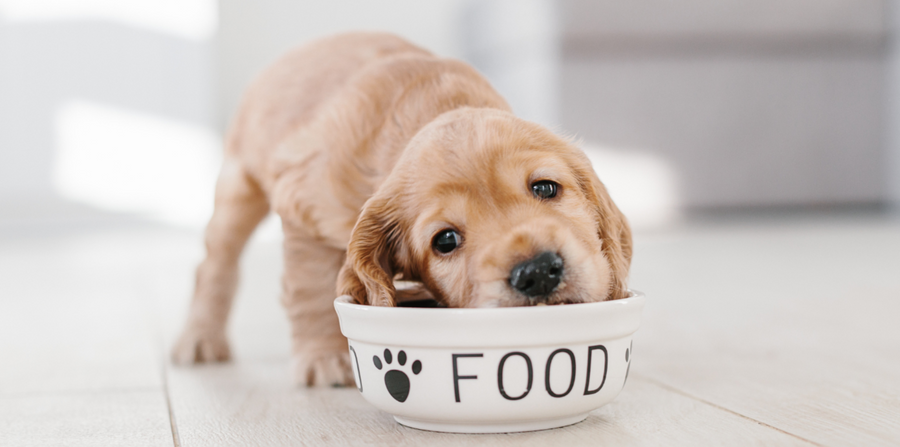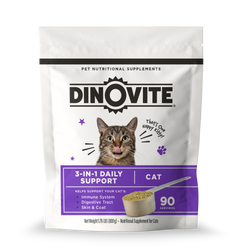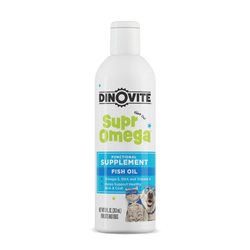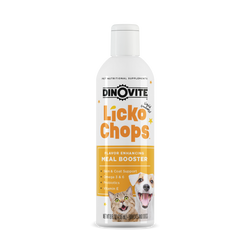Raw Diet Basics Part 1

Are Raw Diets Good for Dogs? Raw Diet Basics for Dogs
We get questions daily regarding feeding a raw diet to cats and dogs. We thought we'd take a few minutes today to cover some "DO's" when considering making this transition.
Truth is, cooking destroys the delicate nutrients that our pets need for a strong immune system and a healthy digestive tract. A dog and cat's body needs more than the unspecified "vitamins" provided in dry kibble to support their immune systems so that they can effectively function. They need active digestive enzymes like bifidobacterium and a host of minerals as well, such as zinc, plus essential fatty acids like Omega 3 and 6.
Control
When you switch to a raw diet, YOU are in control of what your pet eats, not necessarily a company who purchases ingredients from who knows where. You can put together a protein-rich, enzyme-filled and energy giving diet to help provide your pet with the longer, healthier life they deserve.
Protein: Below are meaty proteins options that your dog and cat needs to consume on a daily basis.
- Chicken
- Ground beef
- Ground turkey
These are perhaps the least expensive meats that you can purchase. They are filled with protein and good fats as well.
- Fish
- Salmon
- Mackerel
- Sardines
- Menhaden fish
These are all fish with the highest amounts of omega 3 fatty acids. Good fats are crucial to the condition of your pet's skin and coat, brain function and joint health. If their diet is devoid of these fats, their skin will be dry, flaky and itchy. Their coat will be dull and lack shine. It will also mean they will shed more, and their coat can become thin and patchy. Meat protein is the most important nutrient in any dog or cat's diet.
Carbohydrates
Cats are obligate carnivores....Dogs are omnivores that lean heavily toward carnivore. This may sound a little confusing considering we just learned that too many carbs and grains are not good for canines and felines. However, a little white or brown rice can be beneficial to dogs. They are known as complex carbs. In addition to providing energy, carbs maintain the health of the thyroid, liver, heart, brain and nerve tissue. They regulate how much starch and fat will be broken down and used. Once in the digestive tract and assimilated, carbohydrates are stored in the liver as glycogen, which controls energy. The central nervous system requires carbs for proper function, as well as the brain. The brain can't store glucose, and therefore depends on the minimum supply of glucose from the blood. With insufficient carbs in the diet, protein and fat are converted into energy, making the immune system weak and preventing a body from building enough antibodies to help fight infections, and illnesses.
NOTE FROM DINOVITE: Cats are obligate carnivores. Dogs-there are two camps. One is that dogs are obligate carnivores; one is that dogs are mainly carnivores. See the Raw Diet Part 2 for more details about carbs in a canine's diet and how best to prepare carbs if you choose to add them to your dog's diet. THANK YOU to folks who commented on this article and who are raw diet zealots! This article is mainly for getting started...in an affordable way. We will be covering the more scientific, species specific raw diet for those who are ready to jump in with 2 feet, later in our blog.
Vegetables
Cats do not have a nutritional requirement for veggies however, some veggies such as spinach and kale, are good for dogs. Spinach contains iron which is good for weak or nursing dogs. It also contains antioxidants which help to protect the heart and improve overall health. Kale is loaded with fiber, and it also contains beneficial vitamins and minerals needed for the immune system. You can also feed the occasional piece of broccoli, green beans or leafy veggies. These all are good sources of vitamins that can benefit your dog's health.
Supplements
Vitamin and mineral supplements: An important step to creating a healthy and balanced raw diet for your dog or cat is to add a high grade vitamin/mineral supplement. Why feed a supplement when you are creating and feeding a raw diet? Our soil has been depleted of nutrients and minerals needed to fully enrich the fruits, veggies, grains and grass (that the protein source survives on) and other foods we and our pets need on a daily basis. Even the beef you feed your pet is not loaded with all the nutrients that it could be. Sure, these still contain things that won't be found in commercial foods, but adding a supplement rich in vitamins, minerals, omega fatty acids and other required nutrients can help give those ingredients the punch your pet's body needs for optimal health.
Now that you know some of the benefits of feeding your pet a raw diet and have learned a few of the basics for creating your very own diet at home, we recommend giving it a go! It's the least (and perhaps the best) thing you can do for your furry best friend! Don't be overwhelmed! See this link for an easy dog food recipe! See this link for a easy cat food recipe!
Next we will go over some of the DON'Ts of the raw diet. Keep an eye out for part two coming soon!
*All information on this website is for educational purposes only and is not intended to replace the expert advice of a veterinarian or veterinary practitioner.
Related Products



